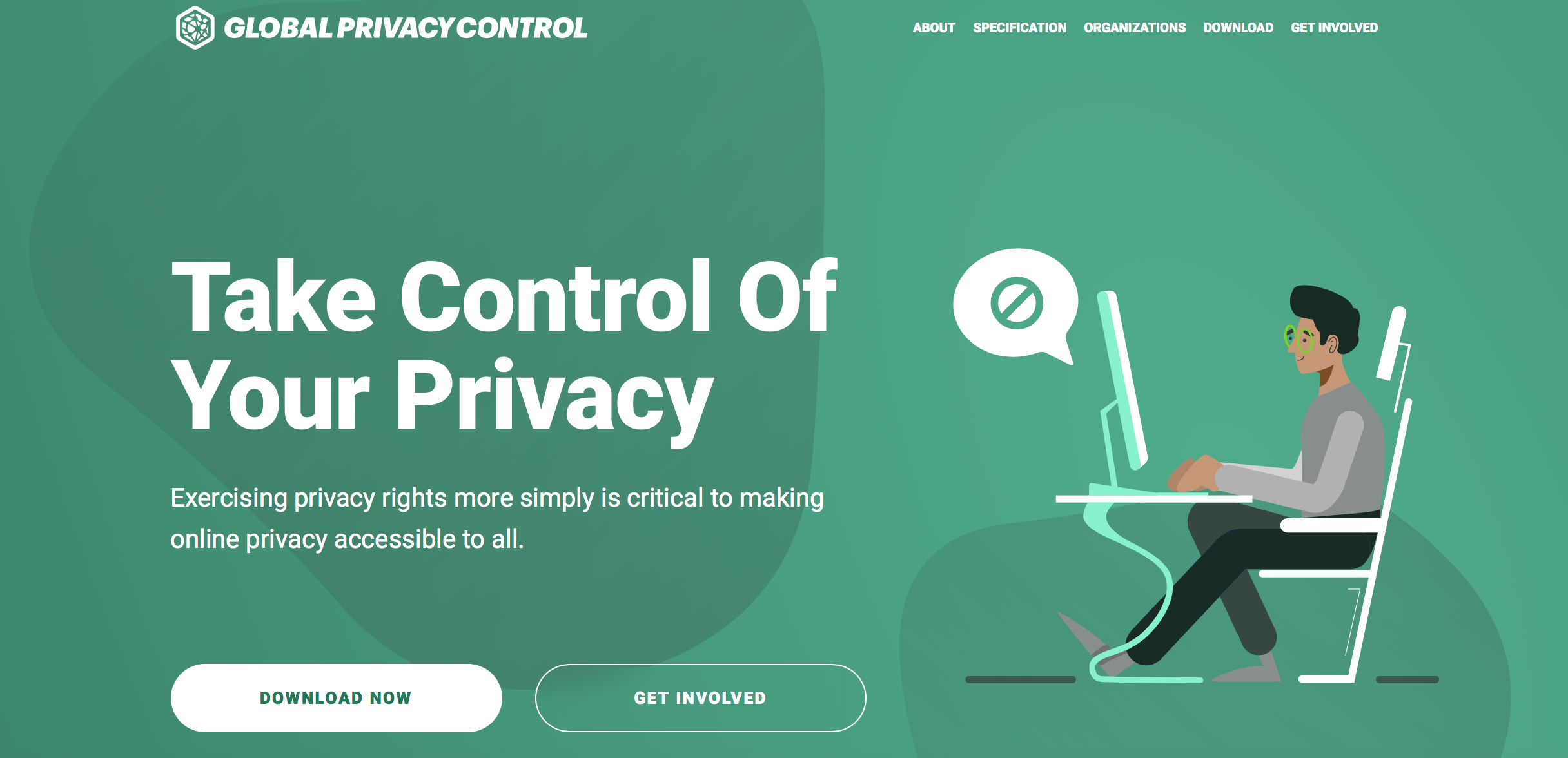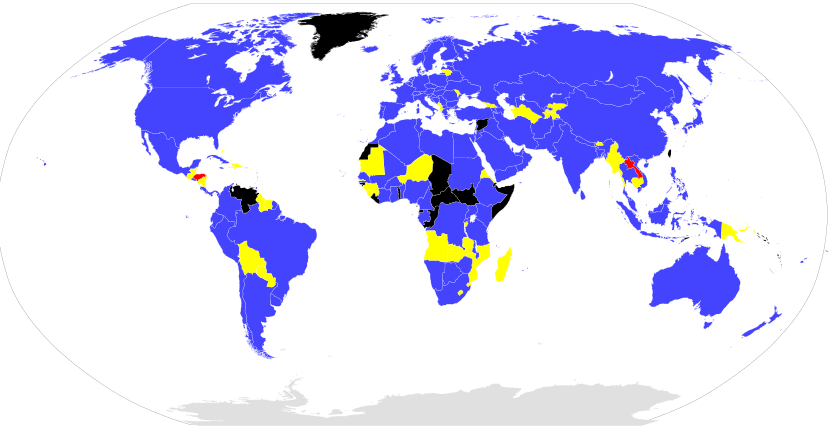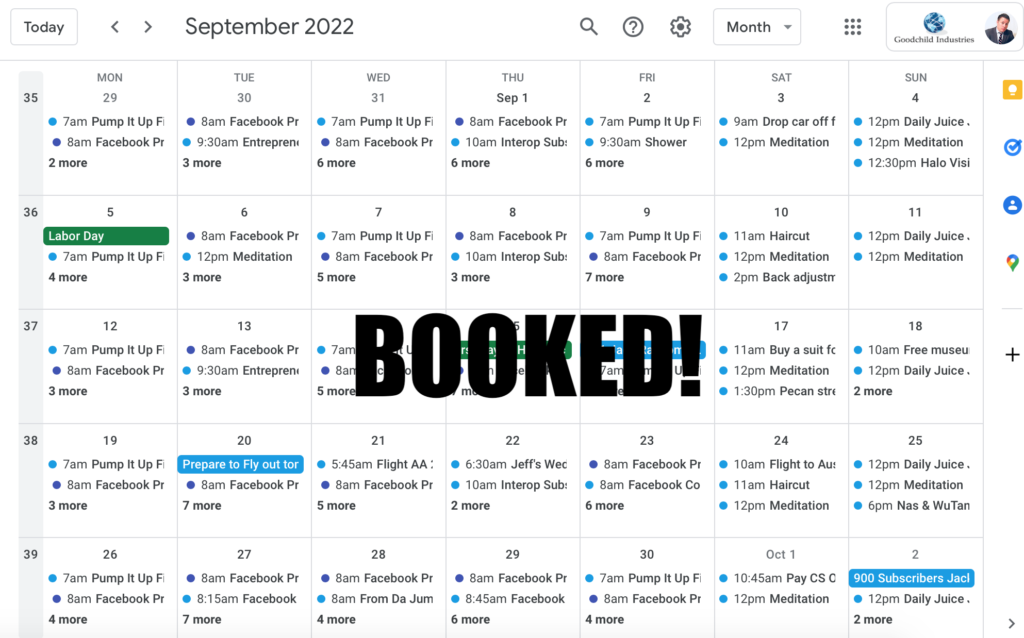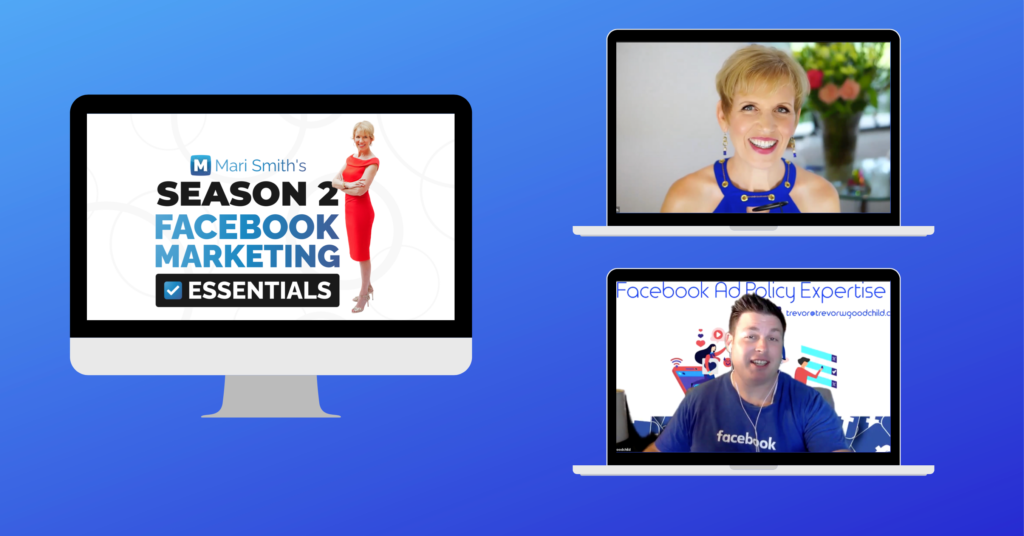
Source: https://globalprivacycontrol.org
The International Organization for Standardization (ISO) just launched the Global Privacy Standard to help protect consumer privacy rights across the entire internet.
The ISO is an international standard-setting body made of representatives from various national standards organizations and it's headquartered in Geneva, Switzerland.
Founded in the 1920s, the ISO has 164 national members from all over the globe, as this map of voting members of the ISO depicts:

There are many precedents for why taking a more active stance on protecting user data is taking center stage now. Violating consumer privacy rights has legal and financial consequences.
The U.S. Federal Trade Commission fined Facebook a stunning $5 billion in the same week that it fined Equifax $575 million due to these companies deceiving users about their ability to control the privacy of their personal information.
If you've ever run Facebook ads targeting consumers in England you've encountered warnings and had to agree to new terms.
As discussed in my blog about the Limited Data Use policy (LDU) for advertising in California, new laws have been passed in the US and the UK govern when and how companies can use your data.
Many businesses have started integrating privacy into their unique selling propositions like search engine provider DuckDuckGo.
Facebook still has to submit quarterly certifications that the company is in compliance with the privacy program mandated by the FTC’s new 20-year settlement order.
Social media companies are under a new level of scrutiny for how they capture data from users and use it in retargeting ad campaigns.
That's not to say social media marketing is going away anytime soon.
(Check out the last blog about top tips for how to use Instagram Reels for your business).
A coalition of tech companies, activist groups and publishers, which include Mozilla, DuckDuckGo and the Electronic Frontier Foundation, are supporting a new standard to allow internet users set their privacy settings for the entire web.
The Global Privacy Control, gives users a single setting in their browsers or through browser extensions instructing every website they visit not to sell or share their data.
This privacy control is already supported by The Washington Post, The New York Times, and the Financial Times. It's also backed by Automattic, which manages the blogging sites of Tumblr and wordpress.com.
While it's going to take some time to implement on this level,Peter Dolanjski, director of product at DuckDuckGo and other supporters of the privacy control think that this may offer legal protection for consumers whose data was sold without their permission going forward.
This is because using the Global Privacy Control, under the California Consumer Privacy Act, can potentially let users send a legally binding request to website owners to not sell their data.
Additionally, the privacy control setting may also be enforceable under Europe’s General Data Protection Regulation.
The ISO backers of the standard are making plans to communicate with European privacy regulators on the exact details of how that would work, according to Dolanjski.
Back in the day, Do Not Track offered a false sense of hope to consumers that they wouldn't be tracked across the web after clicking on one ad.
Do Not Track was a browser setting that was created after the FTC's 2003 Do Not Call registry launched.
But in reality Do Not Track may help ad networks “fingerprint” a browser, a technique used by tracking systems to kill ad blockers by identifying unique characteristics in a user’s browser configuration.
The Global Privacy Standard shows more promise for consumers to have a sweeping internet-wide protection of privacy and possibly with legally enforced support.
What's never mentioned in public forums, Senate meetings with heads of big tech, and publicized discussions about consumer privacy, is the impact of these new regulations on advertising companies.
While it is important to protect consumer privacy, the power of retargeting to sell products is huge. When it's done accurately, I don't mind being retargeted with ads that match my interests.
Marketers have families too. They support their families through running successful ad campaigns.
Being a marketer or owning a company with a social media marketing team doesn't automatically equal bad business ethics or stealing data.
Not every ad campaign that's run is based off of an illicit thieving of personal data. A lot of the hostile encounters between consumers and ad companies come from a simple lack of understanding for how ads work.
If you have any doubt of that, simply look at Mark Zuckerberg explaining the internet to Congress:
It isn't widely known what cookies are, how they are used, and how you can opt out of being tracked.
Simply using an internet browser you don't log into social media with or your email with for google searches can help you filter which ads you're retargeted with.
I know many marketers whether they run Chat bot marketing firms, or social media agencies or train people how to become a marketer who have a heart of gold.
When I took a course by Amy Porterfield I was surprised at her kindness and human approach. Some of the best people I know are heart-based marketers that also want to impact the world in a positive way.
At the same time, there are plenty of 'used-car-salesmen' vibe sales people who really don't care how they affect the world and use unethical methods of getting consumer data and targeting them with ads.
Overall, I still think it's worth asking:
"How do these new regulations, and settings affect the ad industry negatively? To what extent?"
"How many people who are now forced to move online due to covid regulations are going to have trouble making their rent or paying their bills due to more restrictions on advertising?"
These are valid questions to ask when an existing industry is turned on its head due to the mistakes of major players like Facebook, for not protecting massive amounts of users' privacy.
If we look at the last presidential election in 2016, and consider the impact of the Russian hackers with fake Facebook profiles, disinformation that influenced the election results, hate mongering to destabilize America and pit people of different races against each other - it's clear there needs to be oversight here.
There needs to be assurances and triple checks on not just consumer data, but the security of social media sites with large echo chambers of influence.
One of the biggest causes of some of the negative aspects of today’s internet experience is from filter bubbles and misinformation to discrimination based on people’s behavior and perceived demographics.
Which, just to say it plainly, is social media sites' algorithms saying essentially, "Oh you seem like you're saying some racist things, here are more racists who agree with you we'll show you on the News Feed to keep you more engaged and spend a longer amount of time on our website."
The draw back of this is that people just get a confirmation bias on steroids without being exposed to equally valid opposing views on the same topic.
“It’s all traced back to the same behavioral data profiles,” says Gabriel Weinberg, CEO of DuckDuckGo.
On one hand, we definitely need to re-tool how everyday people are fed the same type of info on social media and definitely not steal data from consumers who have opted out.
On the other hand, we also would benefit from taking into account where the balance is for restrictions on advertising and keeping the industry from suffering the same sort of economic depression that hit so many businesses after covid regulations went into play.
What is your opinion about consumer privacy rights? Do you think we should also consider the ability of advertisers to make a living when creating new restrictions on running ads?
. . .
New Solution to Facebook Ad Policy Violations
After years of working at Facebook, I understand exactly what ad copy in your funnel is triggering the automations and how to get compliant. I'm a Facebook ad policy specialist and can audit your funnel, and share what to say that Facebook wants to see instead - but just isn't telling you.
Want to book a call to talk to Facebook and get results? Get solid answers directly from the source instead of guessing, googling and playing roulette? Schedule a call with me and I can easily tell you proven reasons why the automations flag you and how to become compliant.
You'll be swapping out walking in a minefield of ad flags, to have a sure path to having your Facebook ad accounts protected from being disabled. My clients have included social media marketing agencies of Tony Robbins, Harv Eker and Dean Graziosi. I'm featured on the Queen of Facebook Mari Smith's Marketing Essentials Course.
Save energy and money - how much is it costing you to not know why Facebook is shutting you down? My calendar is here.

I get 100s of emails a week from businesses and advertisers asking for help when their facebook ad account keeps getting disabled, so my calendar gets booked fast. But if you want to get to the front, you can pre-pay for a consulting session here: Book a call

If you want to skip the line before this offer ends, immediately secure an expert-level Facebook consulting call from someone at Facebook. Book a call with me now! If you're ok with waiting a bit longer, and entering the waitlist to see if you're eligible - Schedule a call or contact me via email.






Leave a Reply